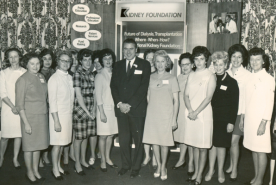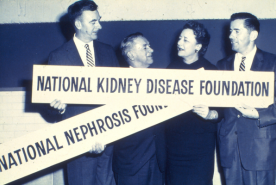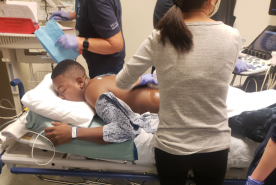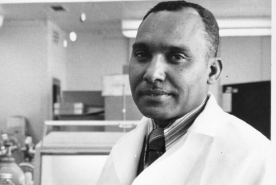January 04, 2023
Natasha Kelly was a bright-eyed college freshman when she first noticed something wasn't right with her health. She began to feel strange and exhausted, barely able to walk the short distance to her classes. Campus doctors were stumped since her bloodwork results were fairly normal, with only a slight dip in kidney function. Natasha moved back home with her grandparents as she could not cope with the growing fatigue or keep up with her studies.
Natasha's lupus diagnosis
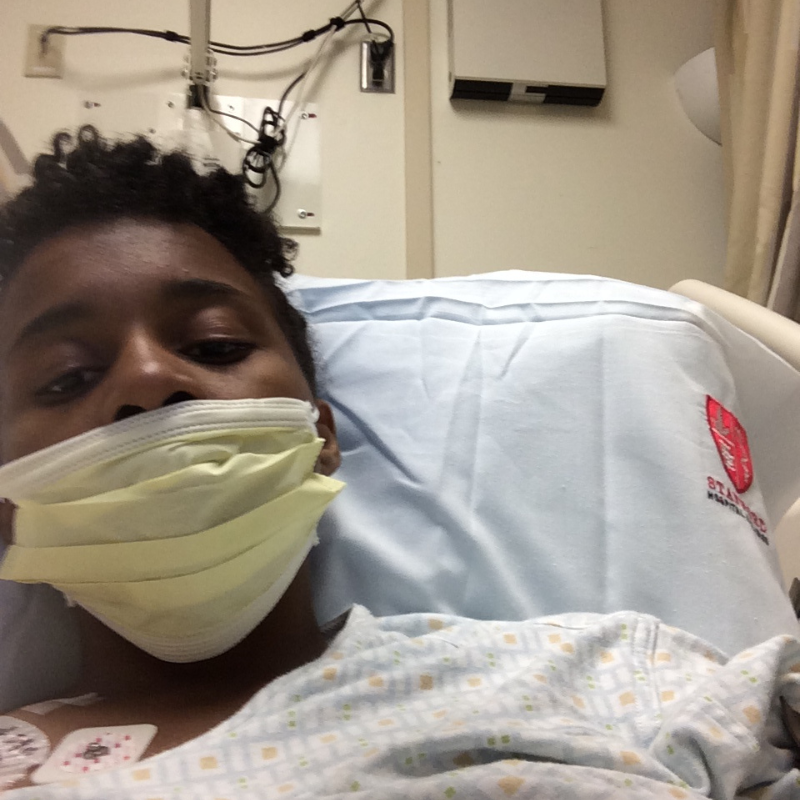
Natasha's family was determined to figure out what was going on. They found a great doctor in New York who saw the slight decline in kidney function along with her other symptoms as clues to a larger issue and determined that lupus was the likely culprit.
"I was only 18 and didn't have any family history of lupus or kidney disease so it was a complete shock," said Natasha. "I went from being a typical college student to leaving school and going to doctor's visits, giving urine samples, and trying new medications to try and slow the lupus down."
Luckily, the medications started to help mitigate the lupus symptoms so she could return to college.
"It felt like I was finally getting back to being my old self. I enrolled in different extracurricular activities, joined a sorority, and felt healthy overall. I graduated college and moved to California for a fashion internship." Natasha said. "I started to get sick again in 2014. Having been so happy about being healthy, I wasn't always diligent about taking my medication. Being in my early twenties, I desperately wanted to live a normal life."
Doctors informed Natasha that her kidneys were functioning at 40% and quickly declining–she'd need to start dialysis if they didn't act now.
"Unfortunately, I did need to go on dialysis but only for three months. It seemed as if my kidneys had fallen asleep and the dialysis helped jumpstart them," said Natasha. "By adhering to my medications, I was able to preserve my kidney function for another four years."
Are you struggling to take medications as prescribed or eat a kidney-friendly diet? NKF Peers can help! Our mentors have lived well with kidney disease and can share how they adapted to a new kidney-disease-friendly lifestyle.
Living with kidney failure and following her dreams

In December 2017, Natasha found herself in the hospital with kidney failure. Wanting the support of her family, she moved back home.
"I decided to move back, start an online course to become a certified software engineer, and try to manage the illness better," said Natasha. "Unfortunately, my health continued to decline and I started dialysis permanently."
Natasha spent her mornings at in-center hemodialysis appointments and afternoons taking classes to perfect her new software skills.
"People kept asking me how I managed to do both since dialysis is like having a full-time job and I was so tired all the time. I felt like I had to create some type of normalcy for myself," said Natasha. "I never saw dialysis as a death sentence. It was an opportunity for me to continue having some quality of life. It wasn't perfect but I did my best to make the most of it. I committed to becoming a software engineer and I was super proud of myself for that life change."
Are you looking for a living donor? Sign up for Finding a Living Donor, our online course designed to help you develop a personal action plan for finding a living donor.
Receiving a kidney transplant

After six years on dialysis, Natasha received a surprising call in the middle of the night on September 14th, 2022–a nearby hospital had a kidney for her!
"It was like a movie. It didn't feel real! I signed up for a kidney transplant at several different facilities, unsure if it was going to happen," Natasha said. "I went through the surgery and stayed in the hospital for a week letting my new kidney wake up."
Despite a few hiccups in finding the right immunosuppressive drugs, Natasha’s kidney is working and she is healthy and happy.
"Remember to show yourself love. Receiving a transplant is a life-changing event, your body is different than it was before, and the medication can be a lot to process," Natasha said. "In times of stress or worry, it helps me to remember that things are not happening to me. I am in the driver's seat."
Are you scheduled for a kidney transplant or trying to adjust to life after your kidney transplant? Sign up for NKF's self-paced online program, After Transplant, to learn about medications, rejection, and more.

